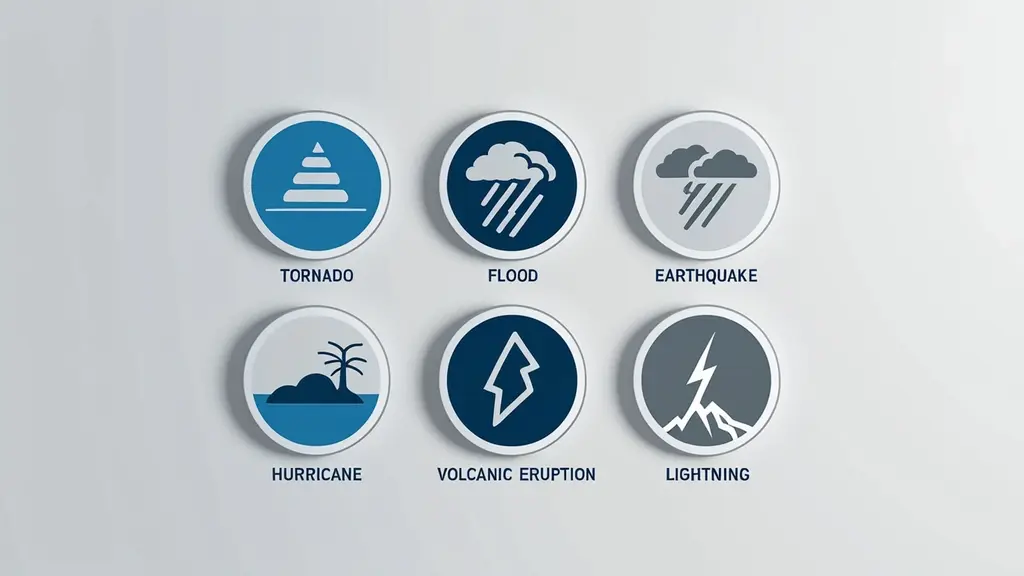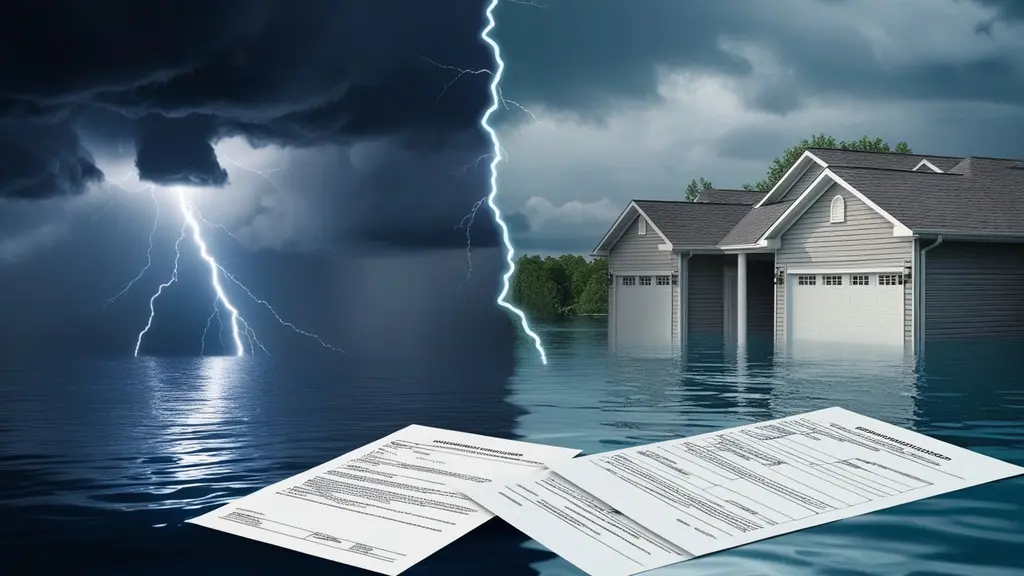Table of Contents
Insurance for Acts of God: An act of God insurance provides essential protection against unpredictable natural disasters and catastrophic events beyond human control. This comprehensive guide explores everything you need to know about securing coverage for insurance for acts of God.
What Qualifies as an Act of God in Insurance Terms?
Insurance providers define an act of God (also known as force majeure) as an unpreventable natural event that occurs without human intervention. These events typically include:

- Earthquakes and seismic activities
- Hurricanes and tropical storms
- Lightning strikes and thunderstorms
- Tornadoes and severe winds
- Floods and flash floods
- Volcanic eruptions
- Landslides and avalanches
Historical Impact of Acts of God Events
According to the National Oceanic and Atmospheric Administration (NOAA), natural disasters caused approximately $165 billion in damage across the United States in 2023. Here’s a breakdown of major events and their insurance implications:
| Event Type | Average Annual Losses | Insurance Coverage Rate |
|---|---|---|
| Hurricanes | $54 billion | 78% |
| Floods | $17 billion | 42% |
| Earthquakes | $6.5 billion | 25% |
| Tornadoes | $12 billion | 65% |
Standard Coverage vs. Act of God Insurance
Standard Insurance Coverage
Most standard homeowners’ insurance policies provide limited coverage for acts of God. However, certain events like floods and earthquakes typically require separate policies or riders.
Specialized Act of God Coverage
Dedicated act of God insurance policies offer comprehensive protection against natural disasters. These policies typically feature:
- Higher coverage limits
- Lower deductibles for qualifying events
- Faster claims processing
- Additional living expenses coverage
- Property damage protection
- Business interruption coverage
Cost Factors for Act of God Insurance
Several factors influence the cost of act of God insurance:
“The location of your property is the single most important factor in determining act of God insurance premiums.” – Insurance Information Institute
- Geographic Location
- Proximity to coastal areas
- Seismic zone classification
- Historical weather patterns
- Property Characteristics
- Building age and construction
- Structural reinforcements
- Safety features
- Coverage Options
- Policy limits
- Deductible choices
- Additional riders
Risk Assessment and Prevention
Understanding Your Risk Level
Before purchasing act of God insurance, assess your property’s risk exposure:
- Consult FEMA flood maps: https://www.fema.gov/flood-maps
- Review geological surveys for seismic activity
- Analyze historical weather data
- Evaluate local building codes and requirements
Mitigation Strategies
Implementing preventive measures can reduce premiums and minimize damage:
- Install storm shutters
- Reinforce roof structures
- Improve drainage systems
- Create emergency response plans
- Regular maintenance and inspections
Filing an Act of God Insurance Claim
Documentation Requirements
Proper documentation is crucial for successful claims:
- Detailed photographs of damage
- Weather reports and official declarations
- Professional damage assessments
- Maintenance records
- Inventory of affected item
Legal Considerations and Policy Exclusions
Understanding policy exclusions is critical:
- Negligence exclusions
- Maintenance-related damages
- Pre-existing conditions
- Man-made disasters
- War and terrorism
Global Perspectives on Act of God Insurance
Different regions approach act of God coverage differently:
United States
- State-specific requirements
- National Flood Insurance Program
- Private market options
European Union
- Standardized coverage requirements
- Cross-border protection
- Climate change adaptations
Asia-Pacific
- Government-backed programs
- Mandatory coverage zones
- Traditional insurance alternatives
Climate Change Impact on Act of God Insurance
Recent studies indicate increasing frequency and severity of natural disasters:
“Climate change is fundamentally altering the risk landscape for insurers and policyholders alike.” – World Economic Forum
Adaptation Strategies
Insurance providers are evolving their approaches:
- Risk modeling improvements
- Premium adjustments
- Coverage modifications
- Policyholder education
Conclusion
Act of God insurance represents a crucial component of comprehensive risk management. As natural disasters become more frequent and severe, understanding and securing appropriate coverage becomes increasingly important. Regular policy reviews and updates ensure adequate protection against unforeseen natural events.
Frequently Asked Questions
Q: Does standard homeowners insurance cover acts of God?
A: Standard policies typically cover some acts of God but exclude others like floods and earthquakes, which require separate coverage.
Q: How can I reduce my act of God insurance premiums?
A: Implement safety measures, maintain your property, choose appropriate deductibles, and bundle policies when possible.
Q: Are all natural disasters considered acts of God?
A: No, only unpreventable natural events beyond human control qualify as acts of God.
Q: Can businesses purchase act of God insurance?
A: Yes, commercial act of God insurance is available and often includes business interruption coverage.
Q: How quickly should I file an act of God insurance claim?
A: File claims as soon as possible after the event, typically within 24-72 hours.
Additional Resources
- National Weather Service: https://www.weather.gov
- Insurance Information Institute: https://www.iii.org
- FEMA Disaster Assistance: https://www.fema.gov/assistance
Note: Insurance regulations and coverage options vary by location. Consult with licensed insurance professionals for specific advice regarding your situation.
